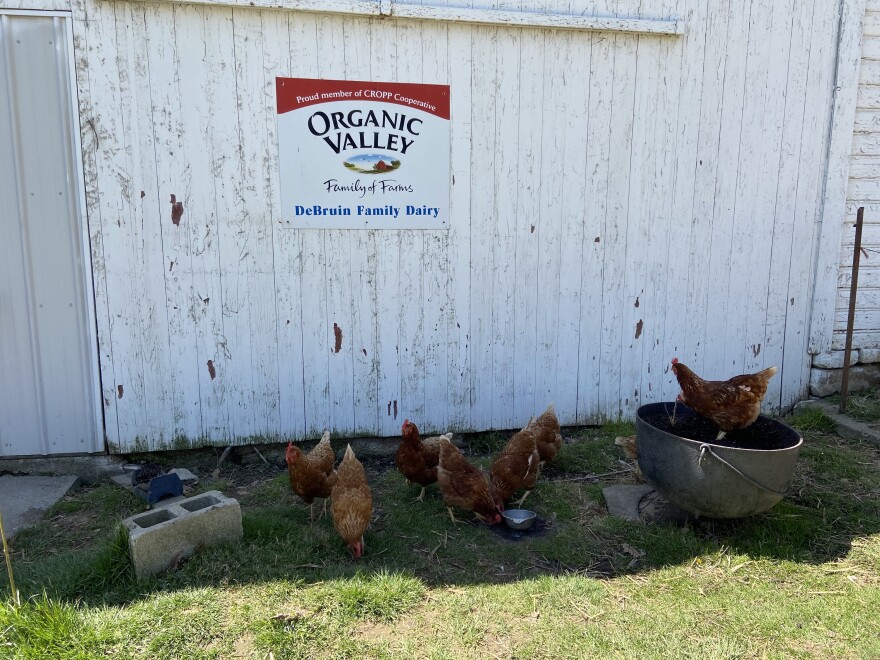Ohio is among the top states for several agricultural crops and for food production and processing. But while farming is considered an essential business under the various shutdown orders, it's a tough time for those who run the state's 76,000 farms.
Gene DeBruin owns a small dairy farm in Fayette County south of Columbus. Each of his 33 cows produce about four gallons of milk daily. And day-to-day operations have been basically the same since the Stay Home order in March.
“Our life on the farm has not changed. The milk truck comes. The service folks come. Our feed is delivered. So pretty much, spring has come and we have just done our thing," DeBruin says.
But Ty Higgins with the Ohio Farm Bureau Federation says it’s a tough time for many dairy farmers.
“We had farmers in Ohio that had to dump milk right there on their farm instead of sending it to the processing facility because that processing facility was getting more and more milk that was usually made to make cheeses and butter for restaurants and pint sized for schools. That milk was now going into making more fluid milk for the consumer and so the processor got backlogged," Higgins explains.
Higgins says many grocery stores were making matters worse by limiting the quantity of milk consumers could purchase.

At the same time, food banks in Ohio are experiencing explosions in the number of people they serve. With more than a million newly unemployed Ohioans, the number of people turning to food banks has increased four-fold in many cases. Lisa Hamler Fugitt with the Ohio Association of Foodbanks says that milk that’s been dumped is sorely needed by many families. She says it’s not just a problem with processing.
“We also have a distribution channel problem where we need semi-tractor trailers to be brought in, refrigerator tractor trailers to be brought in for distributions as well so we can off load gallons and half gallons of milk so we can hand them to the families who are cuing in lines for food," Hamler Fugitt says.
Hamler Fugitt expects the situation will get better now that a new U.S.D.A. program is being put in place to help ease existing problems with processing and distribution.

Dairy farmers aren’t the only ones with the problem. Wheat, soybeans, corn, meat and other Ohio farm staples are expected to yield fewer dollars this year because schools and restaurants were closed last month. 70% of the bacon raised in Ohio goes to restaurant chains. The pork, beef, and butter produced for food service all went away in the blink of an eye.
Ohio Farmers Union President Joe Logan says the problems with processing and distributing are exposing a weakness in the food system.
“The consolidation that we have allowed to happen and even facilitated happening throughout the nation and the world has led us to a point of very high vulnerability for our livestock market and of course what happens in our livestock market then trickles down to all of the corn and soybean producers across Ohio and the nation. So our nation right now is in a vulnerable place and farmers don’t have much of a safe harbor," Logan says.

As for the DeBruin’s, they’ve found that safe harbor by keeping their farm small. It’s a family affair. They don’t rely on hired labor. They provide organic milk for a co-op and the DeBruins get a stable price for their milk.
“We can make a living at it and depend on it. The reason a lot of farms have gotten so large is because the margins are getting thinner and thinner. It’s a boom and bust thing. When it’s good, it’s great. And when you are large, it is really great, right. But when they lose, they are losing a lot too," DeBruin says.
Most farmers cannot and will not go organic. But farm organizations say the problems that have been brought to light during this pandemic won’t be taken lightly once Ohio gets back to its new normal.







